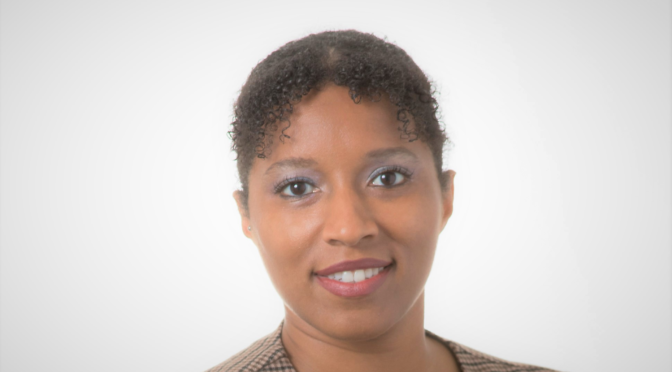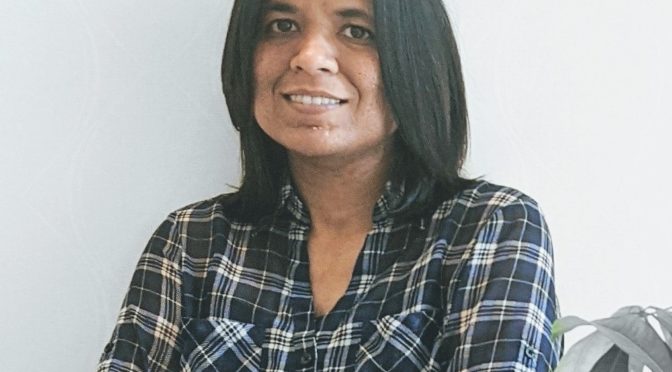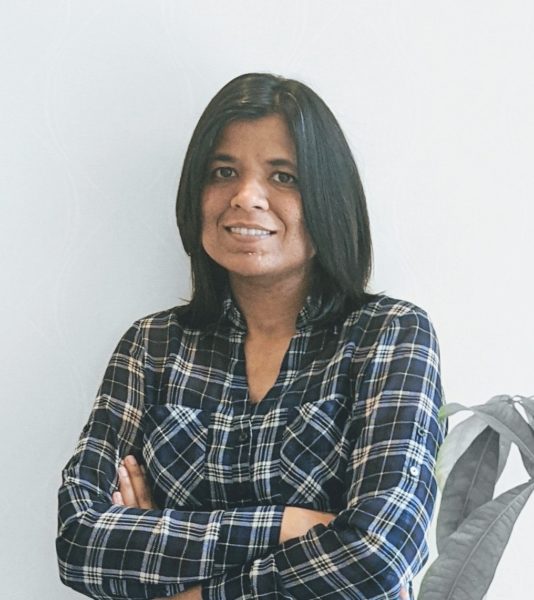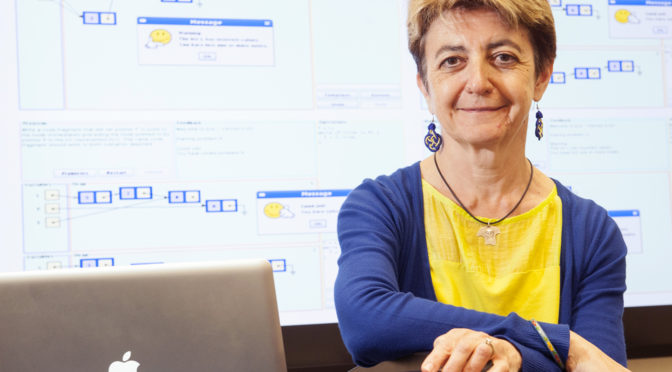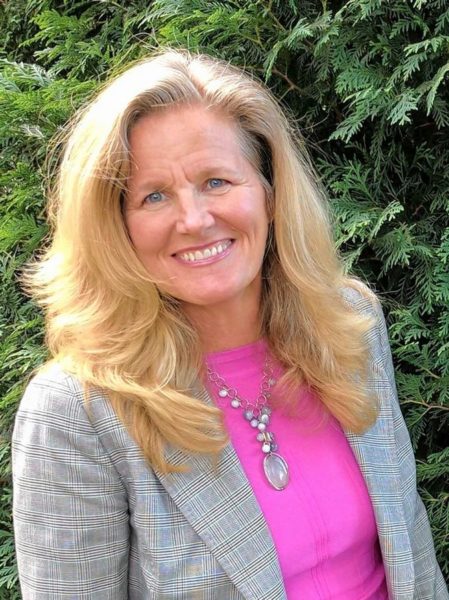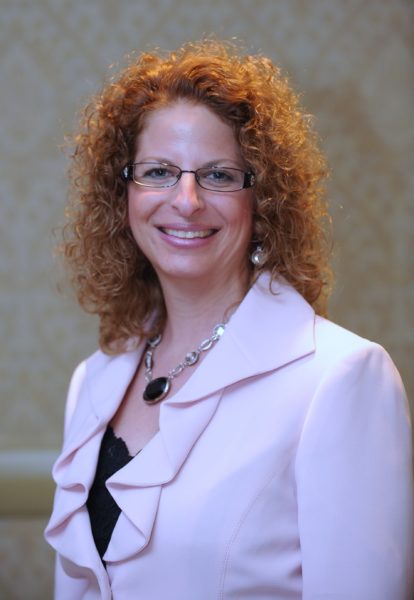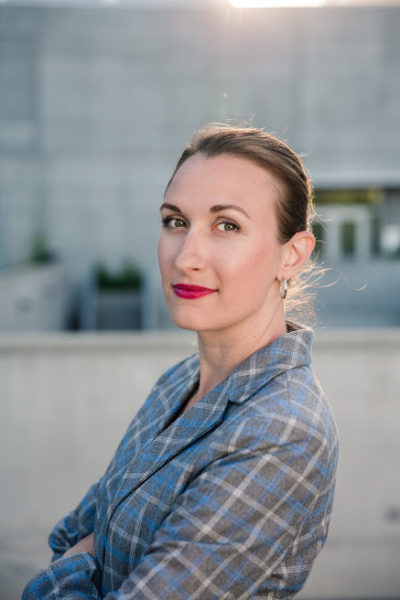By Evan Phillips
Meet Dr. Toyya Pujol, an Operations Researcher at the RAND Corporation, a self-described health data scientist, and an ardent supporter of the mission of AWIS. This summer, she served in the AWIS-Chicago area chapter’s Mentoring Circles program as a mentor for early-career level women. The two of us sat down to talk recently about her career path, and in the process, she wowed me with her sage career advice and animated spirit.
Dr. Pujol describes her career as a series of “things I fell into”, but one connective thread through it all has been “using numbers to tell a story”. As a high school student, she always loved math and physics. In fact, it was her AP Physics class that truly excited her about the world, because it used math to tell a story. She realized that while math came naturally to her, this wasn’t the case for everyone. She went on to work as a tutor for several years and completed a bachelor’s degree in Management Science with a focus in Operations Research at Massachusetts Institute of Technology (MIT).
Following her time at MIT, Dr. Pujol’s interest in mathematical modeling and statistics took her to the Department of Defense (DoD) where she worked as a cost estimator for several years while also completing a master’s degree in Operations Research at Northeastern University. As an Operations Research Analyst at the DoD, she was responsible for in-depth analysis and forecasting of costs for the Air Force. Speaking about her time there, Dr. Pujol described the work as mapping programmatic information (e.g. schedules, technical requirements, logistics, etc.) to a cost distribution. In meeting rooms, she was often the only woman and person of color, as well as the youngest. However, she never felt uncomfortable in these situations. By contrast, there were incidents and a culture in academia that would come to frustrate her.
With some work experience under her belt, Dr. Pujol decided she was ready for something new and had developed an interest in healthcare. She wanted to work with “really cool” real-world data that “you can touch because it represents a person or thing” and so she embarked on her PhD in Industrial Engineering at Georgia Institute of Technology (GA Tech). Starting out, she thought she wanted to work on a project to optimize radiation therapy for cancer treatment but realized this type of research wasn’t the right fit. She was still looking for that interesting story to tell with numbers. In a new lab with funding from a National Institutes of Health (NIH) Bioinformatics Training grant, she moved her focus from optimization to statistics. The new project centered around applying health analytics and machine learning to improve maternal and infant health. In the area of health data and statistics, there were real-world problems where her research could potentially impact decisions in health policy. She was awarded multiple fellowships during this time, and she credits the support from her peers and mentorship from her doctoral committee. She always felt grateful for the many female professors/advisors who set examples of how to thrive in academia.
Her Ph.D. advisor at GA Tech advocated for her and encouraged her in many ways. In fact, Dr. Pujol came to her after an incident during which a senior author on a paper repeatedly interrupted her in a meeting. This person redirected questions about the statistical aspects of Dr. Pujol’s work to a different author who was not actually involved with the statistics. Her advisor helped her see that this was something that should be reported. While this incident specifically stood out, Dr. Pujol described to me other comments and challenges in academia that “expended emotional energy”, such as people challenging your right to be “in the room” based on race or sex. She mentioned that one of the things that we don’t talk about with intersectionality is the additional stress that comes with not knowing why someone is disrespectful. You can spend hours ruminating over questions such as, “Is it your race, your sex, or does this person just not like you?”.
Toward the end of her Ph.D., she became a visiting scholar at Harvard after being connected to a biostatistics lab through one of her contacts from her undergraduate days. Her advisor at Harvard not only helped Dr. Pujol expand her research into causal inference but also helped her navigate her job search. Most importantly, Dr. Pujol credits her advisor at Harvard for setting an example of how to be successful in your career without working all the time! Indeed, Dr. Pujol loves playing volleyball, salsa dancing, and watching horror movies. She emphasized to me how she heard a lot of talk about work-life balance but there is “a complacency in academia to make changes around it”.
Right after completing her Ph.D., Dr. Pujol became an Assistant Professor of Industrial Engineering at Purdue University. Here, she was ready to embark on new data science research pertaining to healthcare. Working on multiple collaborative projects on topics such as opioid trafficking networks and telehealth, she realized she “was a policy researcher who uses engineering methods versus an engineer who does policy work.” She told me she felt “disconnected from the impact of her work” and wanted to see her work be used to help guide better health policy. Hence, several months after starting, her advisor supported her in moving toward something new. This summer, Dr. Pujol started working as an Operations Researcher at RAND Corporation, a nonprofit research organization that focuses on public policy and decision-making. In her own words, RAND is all about “choose your own adventure”, and unlike academia where you have many responsibilities set by your position (research, teaching, and service), now she has more freedom to focus on growing as a researcher while also having the option to teach courses of her design. Perhaps, most importantly though, Dr. Pujol feels much more tightly connected with policymakers, and she can focus her work on developing methods as well as making an impact. In fact, in her second week at RAND, Dr. Pujol was working again on estimating the number of opioids on the illicit market. In two weeks’ time, she gained access to DEA data, did the modeling, and could go to a policymaker with results. This is the type of work she always enjoyed and could now do in this new position. Dr. Pujol is also invested in doing thoughtful research related to diversity, equity, and inclusion (DEI) and health disparities. She explained that this research area must move beyond making simplistic comparisons of two groups, showing a difference, and saying the story is over. “Race is not a cause for the discrepancy in diabetes prevalence. It’s your access to healthy food, the stress from systemic racism, socioeconomic status issues… We need to start thinking about the causal mechanisms in these outcomes… I want to put together simulations to show how we can do this analysis more thoughtfully and bring that to the community.”
Wrapping up our conversation, I was curious what her advice is for students considering graduate school: “A lot of people do it [graduate school], because they don’t know what to do! Unless you are 100% certain with NO exceptions, you want to be a Professor, I strongly suggest working before graduate school.” She stressed some key considerations for those thinking about graduate work: first, you may realize you want to do something different after starting your degree, which can influence what you study in your advanced degree; second, if you can see yourself doing anything other than a Ph.D., go do that first; third, once you’re in a graduate program, think about what “launchpad” you want to set up before graduating—like network connections and transferrable skills. Dr. Pujol’s own career trajectory involved trial and error to figure out what career would be most meaningful for her. Her advice: “Constantly update your priorities.”

